Ruiqing Chen
Language and Sketching: An LLM-driven Interactive Multimodal Multitask Robot Navigation Framework
Nov 14, 2023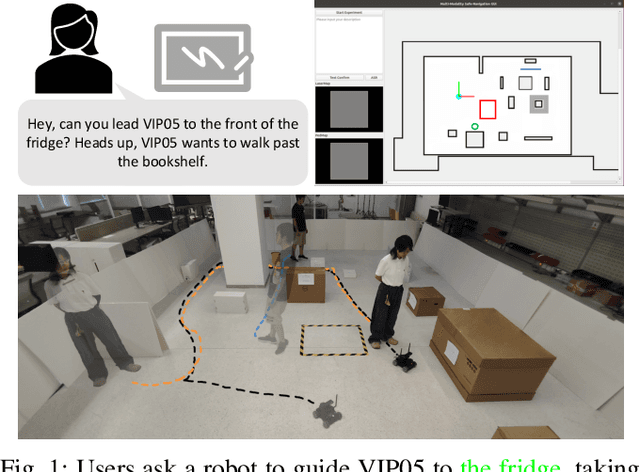
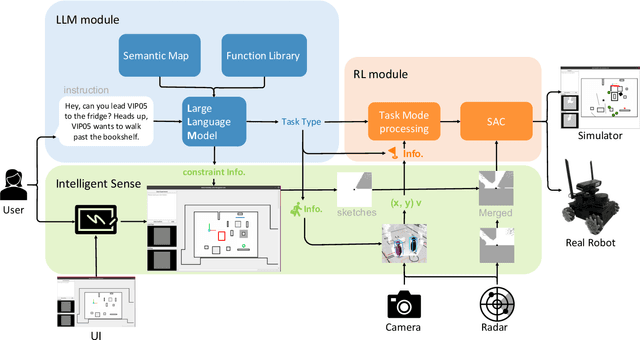
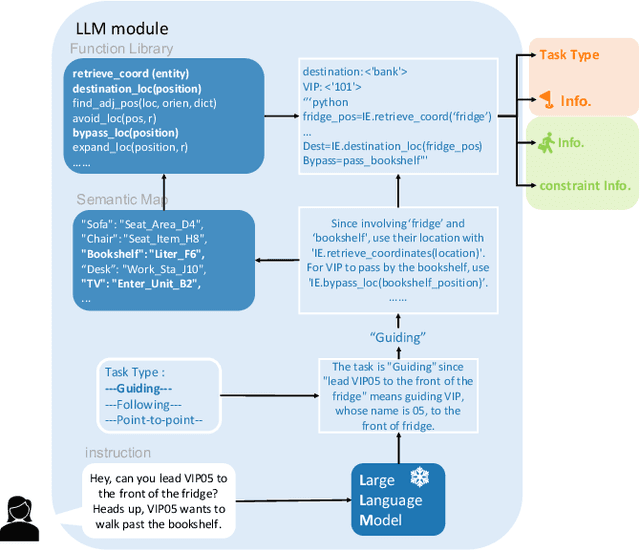
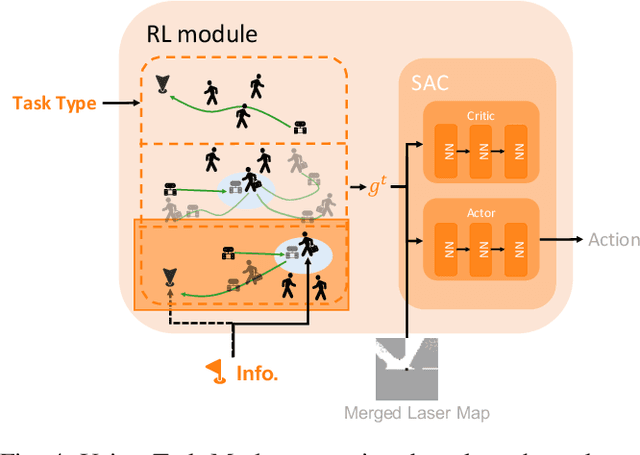
Abstract:The socially-aware navigation system has evolved to adeptly avoid various obstacles while performing multiple tasks, such as point-to-point navigation, human-following, and -guiding. However, a prominent gap persists: in Human-Robot Interaction (HRI), the procedure of communicating commands to robots demands intricate mathematical formulations. Furthermore, the transition between tasks does not quite possess the intuitive control and user-centric interactivity that one would desire. In this work, we propose an LLM-driven interactive multimodal multitask robot navigation framework, termed LIM2N, to solve the above new challenge in the navigation field. We achieve this by first introducing a multimodal interaction framework where language and hand-drawn inputs can serve as navigation constraints and control objectives. Next, a reinforcement learning agent is built to handle multiple tasks with the received information. Crucially, LIM2N creates smooth cooperation among the reasoning of multimodal input, multitask planning, and adaptation and processing of the intelligent sensing modules in the complicated system. Extensive experiments are conducted in both simulation and the real world demonstrating that LIM2N has superior user needs understanding, alongside an enhanced interactive experience.
Multi-Agent Constrained Policy Optimisation
Oct 06, 2021



Abstract:Developing reinforcement learning algorithms that satisfy safety constraints is becoming increasingly important in real-world applications. In multi-agent reinforcement learning (MARL) settings, policy optimisation with safety awareness is particularly challenging because each individual agent has to not only meet its own safety constraints, but also consider those of others so that their joint behaviour can be guaranteed safe. Despite its importance, the problem of safe multi-agent learning has not been rigorously studied; very few solutions have been proposed, nor a sharable testing environment or benchmarks. To fill these gaps, in this work, we formulate the safe MARL problem as a constrained Markov game and solve it with policy optimisation methods. Our solutions -- Multi-Agent Constrained Policy Optimisation (MACPO) and MAPPO-Lagrangian -- leverage the theories from both constrained policy optimisation and multi-agent trust region learning. Crucially, our methods enjoy theoretical guarantees of both monotonic improvement in reward and satisfaction of safety constraints at every iteration. To examine the effectiveness of our methods, we develop the benchmark suite of Safe Multi-Agent MuJoCo that involves a variety of MARL baselines. Experimental results justify that MACPO/MAPPO-Lagrangian can consistently satisfy safety constraints, meanwhile achieving comparable performance to strong baselines.
Trust Region Policy Optimisation in Multi-Agent Reinforcement Learning
Sep 23, 2021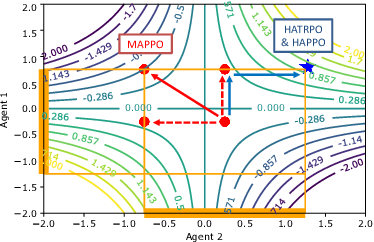


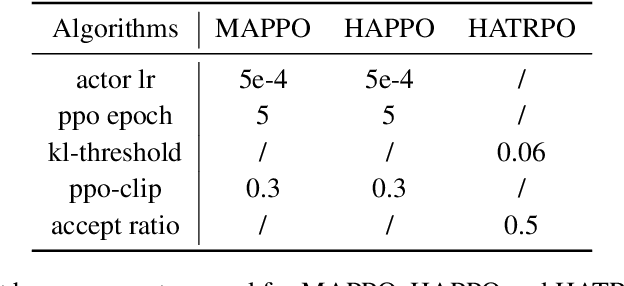
Abstract:Trust region methods rigorously enabled reinforcement learning (RL) agents to learn monotonically improving policies, leading to superior performance on a variety of tasks. Unfortunately, when it comes to multi-agent reinforcement learning (MARL), the property of monotonic improvement may not simply apply; this is because agents, even in cooperative games, could have conflicting directions of policy updates. As a result, achieving a guaranteed improvement on the joint policy where each agent acts individually remains an open challenge. In this paper, we extend the theory of trust region learning to MARL. Central to our findings are the multi-agent advantage decomposition lemma and the sequential policy update scheme. Based on these, we develop Heterogeneous-Agent Trust Region Policy Optimisation (HATPRO) and Heterogeneous-Agent Proximal Policy Optimisation (HAPPO) algorithms. Unlike many existing MARL algorithms, HATRPO/HAPPO do not need agents to share parameters, nor do they need any restrictive assumptions on decomposibility of the joint value function. Most importantly, we justify in theory the monotonic improvement property of HATRPO/HAPPO. We evaluate the proposed methods on a series of Multi-Agent MuJoCo and StarCraftII tasks. Results show that HATRPO and HAPPO significantly outperform strong baselines such as IPPO, MAPPO and MADDPG on all tested tasks, therefore establishing a new state of the art.
 Add to Chrome
Add to Chrome Add to Firefox
Add to Firefox Add to Edge
Add to Edge